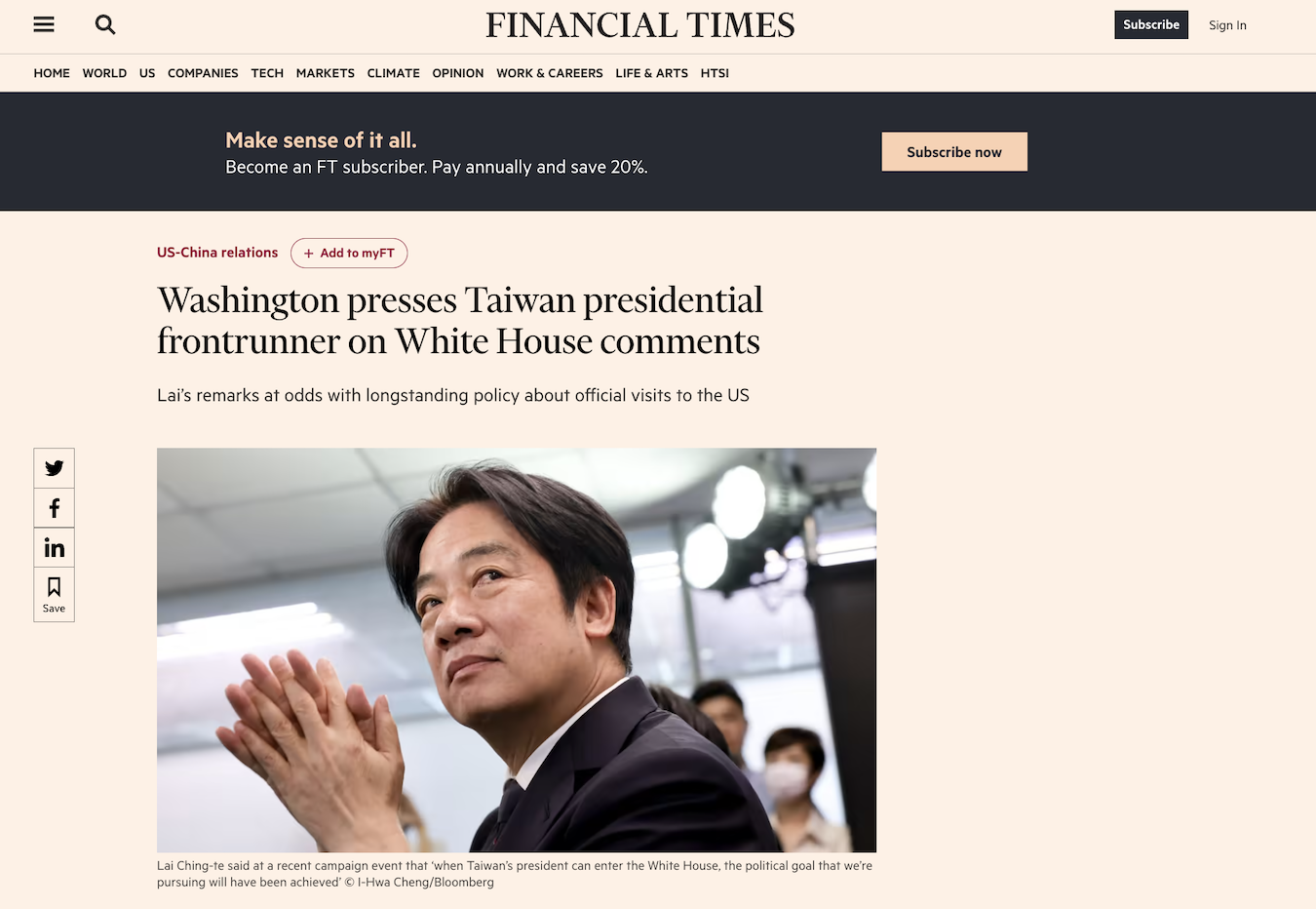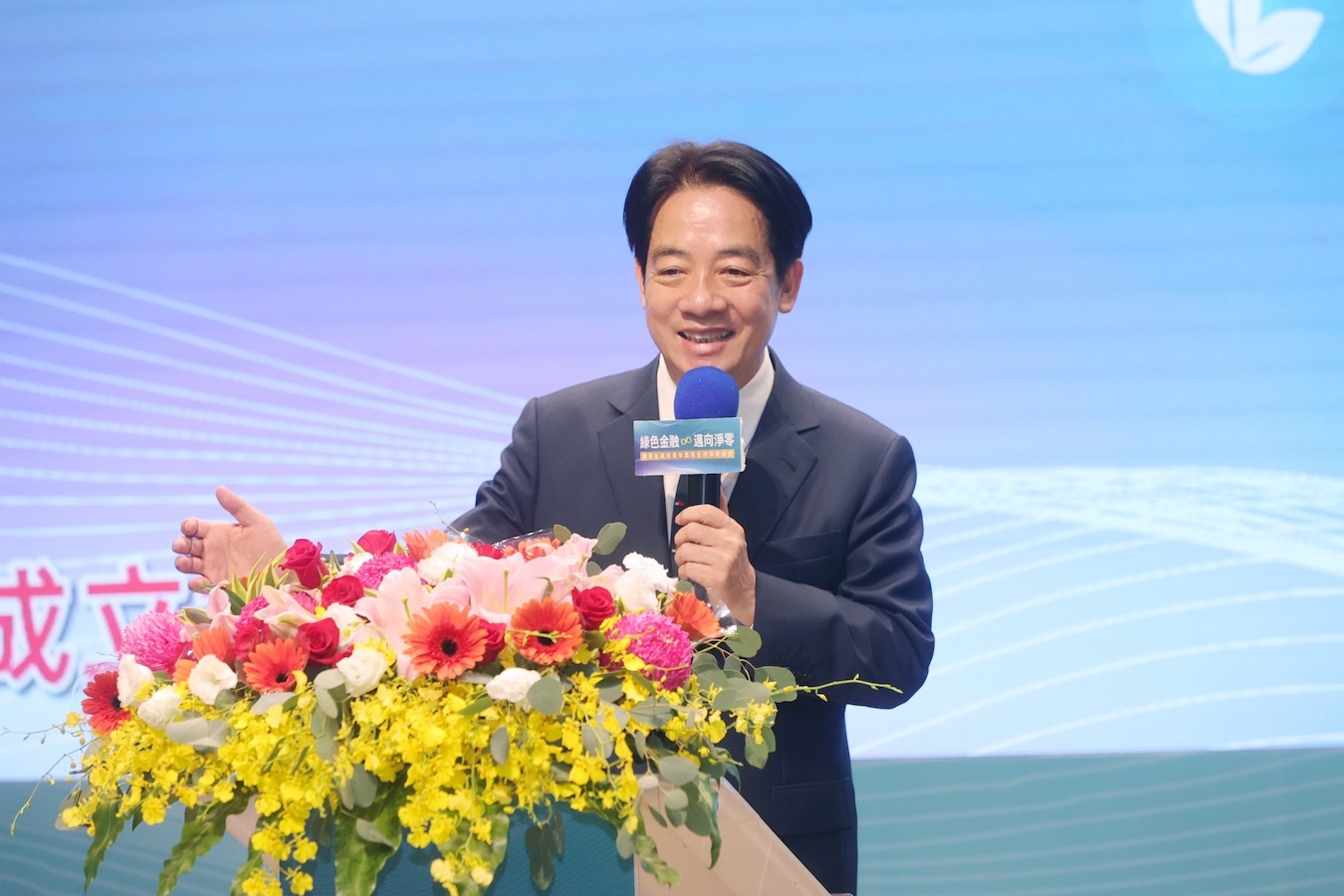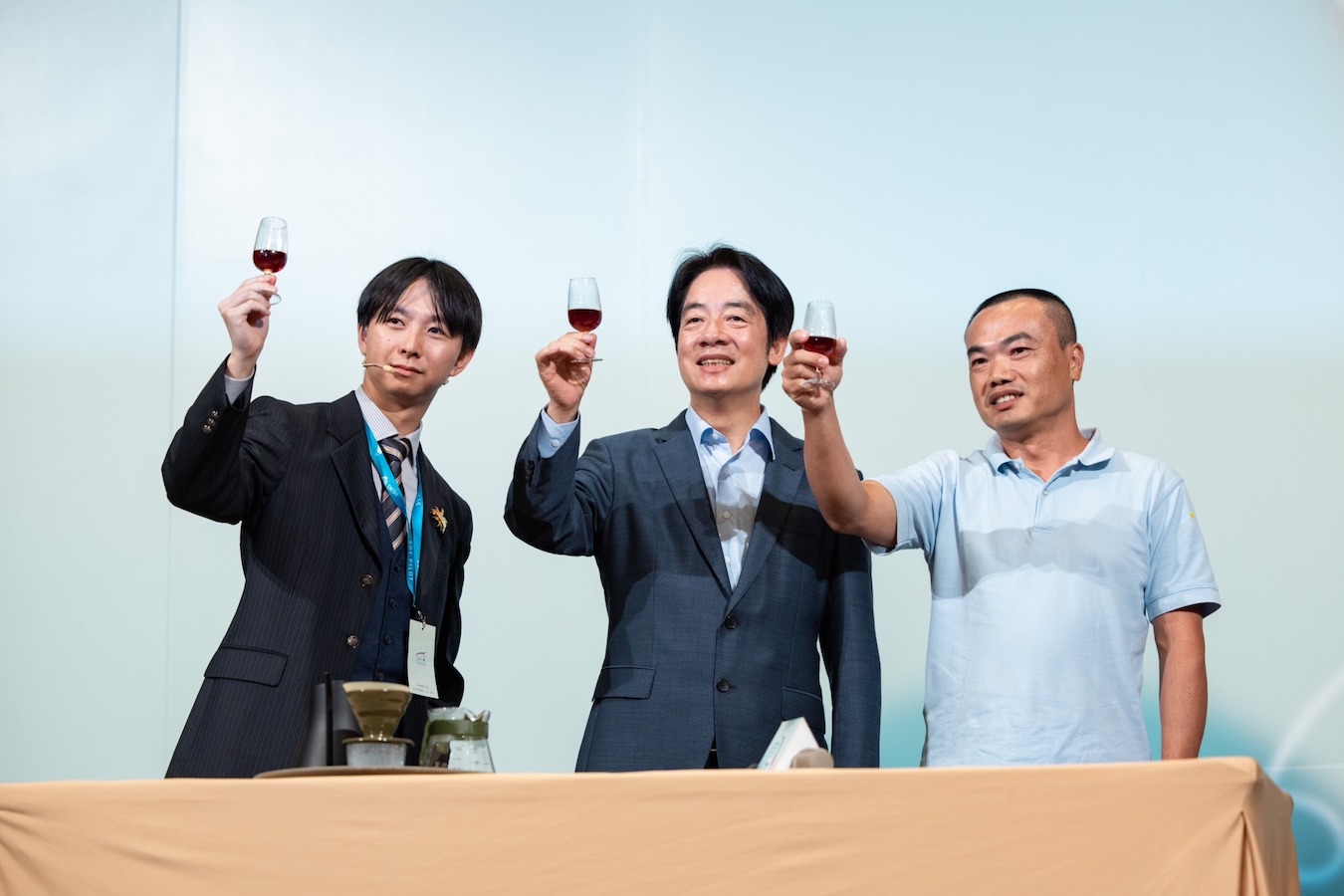by Brian Hioe
語言:
English
Photo credit: William Lai/Facebook
A REPORT IN the Financial Times earlier this week indicated that some in Washington DC were upset with DPP presidential candidate William Lai for suggesting that one day he hoped to see a Taiwanese president visit the White House. As the same article quoted an official stating that the White House had not been in contact with the Lai campaign over the remarks, those unhappy about Lai’s comments may not be from the White House, but could be from the State Department.
Ironically, Lai’s comments were likely meant to signal moderation, but have probably been honed in by those anxious about the prospect of another DPP presidency. Namely, it is true that a Taiwanese president visiting the White House would break with diplomatic precedent, but they take place at a time of strengthening relations between the US and Taiwan. They also take place at a time in which US President Joe Biden has ventured off-script multiple times to suggest a commitment by the US to defend Taiwan when there is no such commitment, as a result of which such comments were quickly walked back.

The Financial Times article in question
That is, Lai’s comments were made in the same timeframe as Lai stating that he would most like to have dinner with Xi Jinping when asked at a National Taiwan University event who in the world he would most like to talk with over dinner. Lai aimed to show that he was open to diplomatically engaging with China, if this was on equal terms, though Lai said that he would tell Xi to “chill out” over that dinner. Lai was probably hoping to show that he emphasized relations with the US, but was not irrationally opposed to engagement with China, as the KMT has sought to frame him as.
Yet there are those in Washington DC that still are anxious about the prospect of a Lai presidency, particularly in light of past comments by Lai as Tainan mayor in which he claimed to be a “pragmatic worker for Taiwanese independence.” Some in DC circles also continue to idealize the KMT as the party most able to maintain stable relations with China and do not seem cognizant of the KMT’s sharp drift toward pro-China stances in the last two decades, inclusive of its current embrace of US-skeptic discourse.
One notes that in the time since such comments by Lai, he has sought to signal moderation in his current bid for president, emphasizing that he will maintain continuity with the policies of current president Tsai Ing-wen. Lai also has made all manner of frivolous comments as part of election bids, including comments that it was possible to “Love Taiwan and have an affinity word China” and stated the relation between Taiwan and China was one between friends–these were comments that provoked outrage from quarters of the pan-Green camp during his stint as premier.

DPP presidential candidate William Lai. Photo credit: William Lai/Facebook
Some have framed Lai’s more recent comments as a sign of his lacking foreign policy credentials. Still, it is also possible that Lai was hoping to expand the amount of diplomatic space that a US president can have, as such comments were made ahead of a stopover in the US next month as part of an upcoming visit to Paraguay, one of Taiwan’s few remaining diplomatic allies.
Yet one notes to what extent DC could try to throw overboard if they latch onto bizarre views of him as a pro-independence provocateur, more in line with Chen Shui-bian than Tsai Ing-wen. Despite Tsai’s evident moderation, the White House sought to sabotage her 2012 run with a phone call placed to the Financial Times emphasizing lack of faith in her presidency. So, too, could one see attempts to undercut Lai in favor of the KMT if DC somehow unites around the view of Lai as a pro-independence provocateur. But in the meantime, the KMT is unlikely to embrace support from the US, given to what extent the party has leaned into narratives suggesting that ties with the US will embroil Taiwan in war, and that the US actively hopes this for Taiwan. This remains to be seen.



